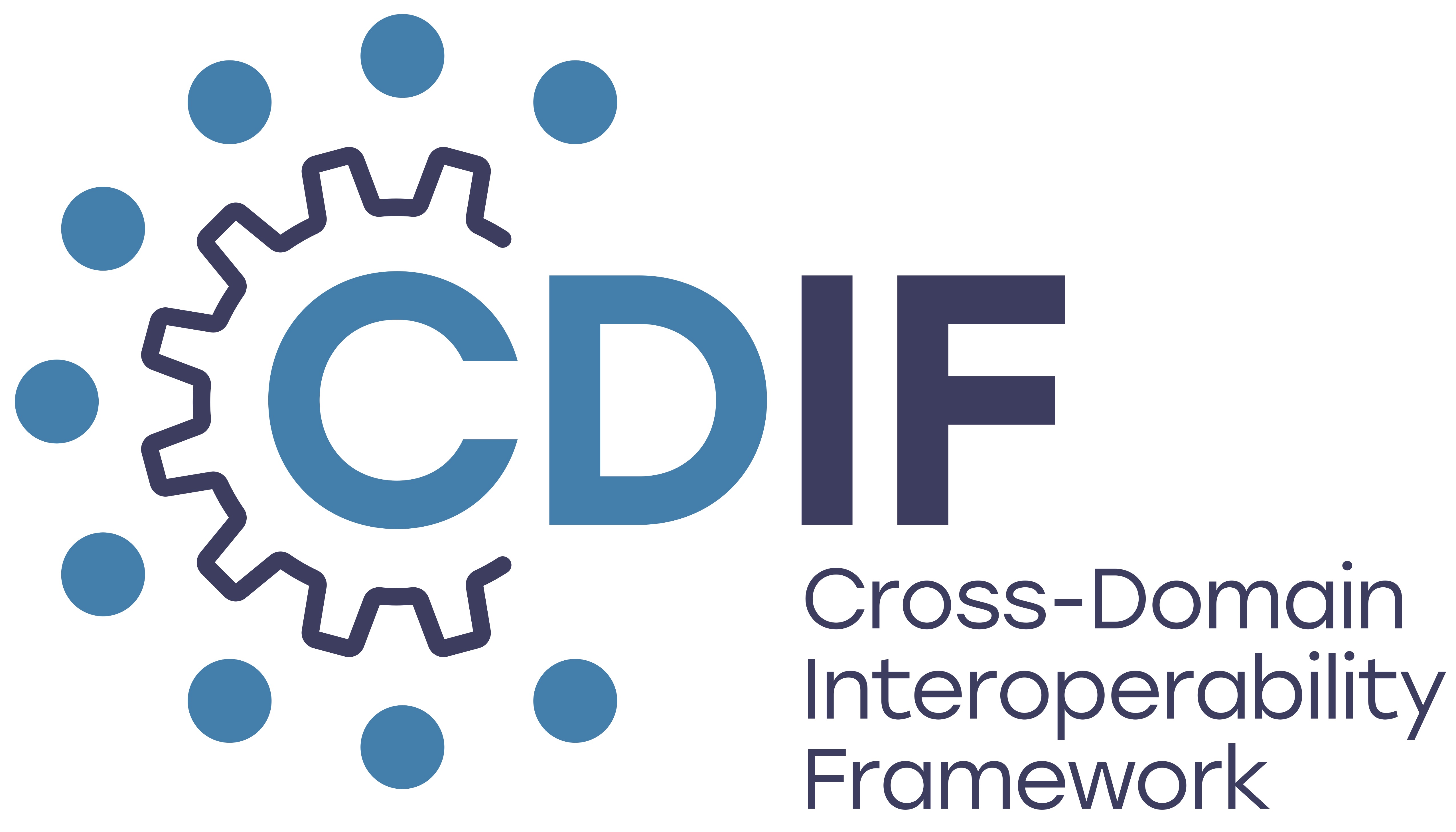Why CDIF Matters#
CDIF is designed to address the question of what standards should be used, and how should they be implemented, which arises almost immediately in the implementation of systems in accordance with the FAIR Data Principles (Wilkinson et al., 2016). The FAIR principles require that data and metadata be described according to common standards and made available through common protocols and mechanisms, but as principles, they do not specify which standards and protocols. Within the context of a specific domain or infrastructure, established practice can provide some guidance, and implementers use the standards and protocols that are common within that domain or infrastructure.
In a scenario where FAIR resources are intended for use across domain and infrastructure boundaries this approach breaks down, it requires systems in every domain to support the standards and protocols of every other domain whose resources might be of interest. Given the number of different functions that need to be supported for the discovery, access, integration, and use of data, and the number of standards and protocols these functions require, this becomes an overwhelming task. CDIF attempts to provide recommendations to help resolve this issue with a set of non-domain-specific standards and their implementation for scenarios where FAIR exchanges are taking place across domain and infrastructure boundaries. While there is no authority that can dictate how the FAIR principles are to be implemented, it is possible to recommend a single approach to promote convergence on a set of standards, at least for typical cases. While adoption of such recommendations is of necessity voluntary, the utility of a common approach will serve as the motivator.
